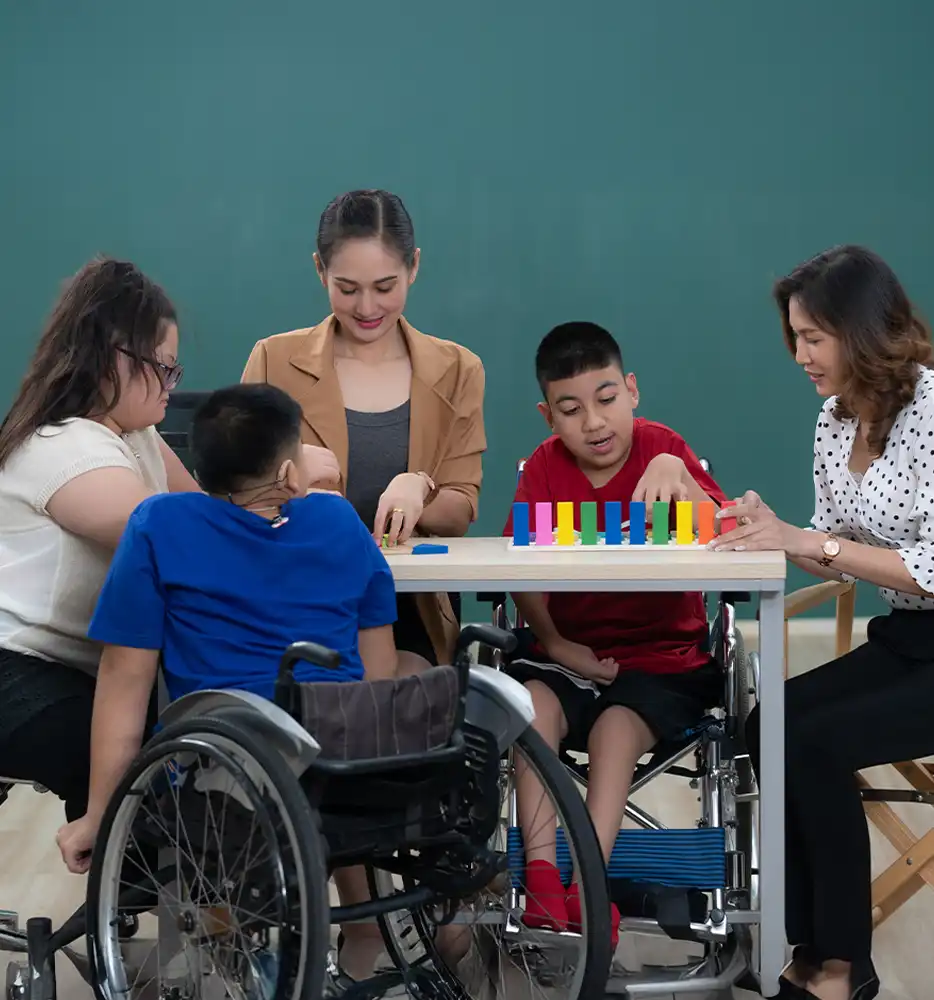

Master's in Clinical Mental Health Counseling
Master of Arts in Counseling, Clinical Mental Health Counseling
Prepare for a Meaningful Career Supporting Mental Health and Wellness
The Master of Arts in Clinical Mental Health Counseling at UT Permian Basin equips graduates with the comprehensive skills and knowledge needed to make a meaningful impact in the lives of others. Students will gain expertise in ethical and legal counseling practices, cultural and social foundations, human development, and career counseling. The program also emphasizes developing strong helping relationships, group counseling techniques, assessment tools, and research-based program evaluation. Graduates will be well-prepared to serve diverse communities with sensitivity and competence, addressing the evolving needs of a multicultural society.
Take the Next Step in Your Journey
Learn about the Graduate Studies programs and requirements.
Grad Studies Admission and Deadlines
Find application requirements, deadlines, and everything you need to start your graduate journey at UTPB.
MA in Counseling, Clinical Mental Health Counseling Degree Requirements
Explore the full list of courses, credit hours, and research components needed to complete the MA in Counseling at UTPB.
What You'll Learn in the Clinical Mental Health Counseling Program
Graduates of the UT Permian Basin counseling program will acquire knowledge in the areas of ethical, legal and professional issues in counseling, as well as social and cultural foundations, human growth and development, career development, helping relationships and skills, group work, appraisal (tests and measurements), research and program evaluation. Graduates will also obtain a strong understanding of diversity issues and be able to address the needs of a progressively growing diverse population.
Students completing the program with a specialization is clinical mental health counseling (CMHC) will demonstrate knowledge of:
- The roles, functions, credentialing and professional identity of professional counselors, including: professional standards and behaviors as described by the Texas State Board of Examiners of Professional Counselors and the American Counseling Association.
- Policies, laws, legislation and other issues relevant to professional counselors in a culturally diverse society.
- Roles of the counselor in various community settings, organizational and legal dimensions of those settings and evidence-based interventions, consultation, education and outreach.
- Principles for assessment, diagnosis and the use of current diagnostic tools and case conceptualization in a culturally diverse society.
- Competencies necessary to conduct research and use assessment in order to develop, implement, and maintain a comprehensive counseling program.
- Program development and delivery to diverse populations, including prevention, support groups, psychoeducation, career/occupational counseling, and self-help.
- Effective strategies for promoting client understanding of and access to community resources, and modalities for initiating, maintaining, and terminating counseling services with diverse populations.
Degree Requirements
To earn the Master of Arts in Clinical Mental Health Counseling, students must meet the following requirements:
- Complete a minimum of 60 semester credit hours, including:
- 51 credit hours of core coursework
- 9 credit hours of clinical coursework
- Maintain a cumulative GPA of 3.0 or higher
- Earn no more than two grades of C in courses counted toward the degree
- Pass the Comprehensive Examination
- Demonstrate professional fitness as outlined in the Fitness to Practice Standards
- Adhere to ethical standards of national and state counseling boards
For the most current and detailed information, please refer to the official UTPB Graduate Catalog.
Learn More about Clinical Coursework
The required clinical coursework includes a practicum and internship experience that will provide students with the opportunities to practice counseling skills under the supervision of a qualified professional counselor. The practice component will give students the opportunity to apply what they’ve learned in class in a real-life setting.
Practicum
Students will complete 100 hours under the direction of a qualified supervisor, 40 of which are direct service hours. Of those 40, students are expected to accrue at least 5 hours of individual counseling and group counseling each. The student will meet with the supervisor on a weekly basis to review work and professional development. Students will be evaluated throughout the semester by their supervisor(s) and instructor.
Internship
Students must complete their practicum before they can participate in an internship. Each student will complete 300 hours per semester under the direction of a qualified supervisor, 120 of which are direct service hours. Of those 120, students are expected to accrue at least 10 hours of individual counseling and group counseling each. The student will meet with the supervisor on a weekly basis to review work and professional development. Students will be evaluated throughout the semester by their supervisor(s) and instructor.
What are Candidate Examinations?
Counselor Preparation Comprehensive Examination (CPCE)
The Counselor Preparation Comprehensive Examination (CPCE) is a national exam that is designed as a summative evaluation that measures the professional knowledge students have obtained during their counselor preparation at UT Permian Basin.
| Criteria | Regular Admission | Conditional Admission |
|---|---|---|
| Bachelor’s Degree | Required from an accredited college or university | Required from an accredited college or university |
| GPA Requirement | 3.0 or better in the last 60 credit hours of undergraduate coursework | 2.5 – 2.99 in the last 60 credit hours of undergraduate coursework |
| Personal Statement | 600-word statement outlining your interest in the program, background, experience, and goals | Same as Regular Admission |
| Letters of Recommendation | Three letters (one may be replaced with honorable military discharge documentation) | Same as Regular Admission |
| Additional Requirements | None | At least one of the following: - Written explanation of low GPA and success strategies - Personal interview (phone or in person) |
| Admission Approach | Holistic review based on academic and personal qualifications | Holistic review including academic, socioeconomic, and background factors as per Texas Education Code Section 51.842 |
Earn your Behavioral Health master's degree for free!
Make an Impact at UTPB and earn your master's degree for free. Gain the knowledge, skills, and real-world experience needed for a fulfilling career in social work, counseling, or psychology. Make an immediate impact in your community.
Learn MoreDegree Roadmap
Get all the details on our Counseling program, including admission requirements, financial considerations, class requirements, and more.
View Academic CatalogMore from the Department of Counseling
Explore everything Counseling has to offer at UTPB!
Counseling Program






















